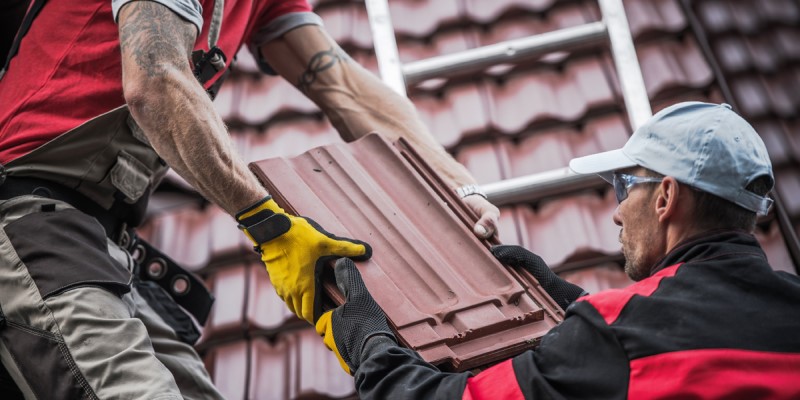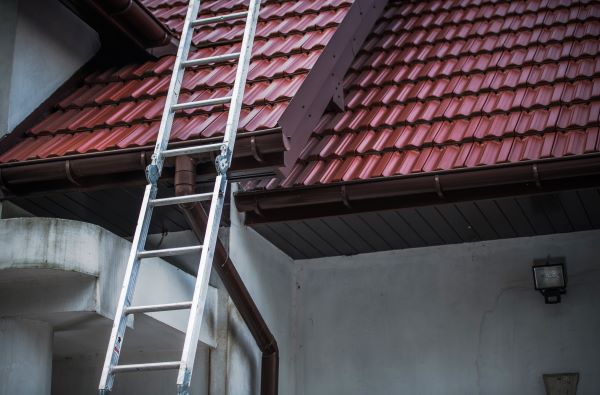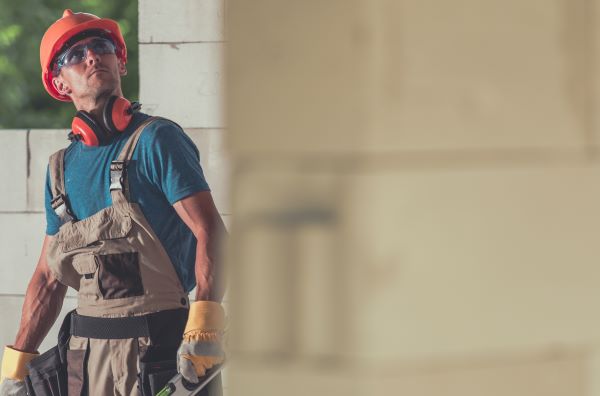How to Find a Good Roofer

The roof is a fundamental part of any building’s structure. It’s vital that your roof stays in top condition, as a damaged roof can quickly lead to deterioration in other parts of the home. Even minor issues can quickly snowball into something major, particularly moisture damage, mould, damp, and rot. Not only can these affect the performance of your insulation, but they can spread to the timbers, putting your home and family at risk.
This is why it’s so important to perform regular checks on your roof and ideally in your loft space. Often, if a problem is nipped in the bud, it won’t require professional help. For more information, take a look at our guide to finding and fixing roof leaks. Or, if you’re dealing with a major issue right now, take a look at the blogs below for some helpful tips and advice.
- What to Do When a Storm Damages Your Roof
- How to Deal with Snow on the Roof
- How to Fix Leaking Gutters
But even if you’re a seasoned DIYer, we’d still advise that you consult a qualified roofer to take a closer look at your roof and loft space every few years or so. By using the tips in our helpful guide below, you’ll know what questions to ask, and understand the key points around finding a good roofer in the UK.
Table of Contents
How to Find a Good Roofer
Recommendations & Previous Work
A simple yet extremely helpful starting point is talking to friends or family that have had previous roofing work done about roofers that they recommend. This is beneficial as you can ask a range of questions such as ‘Was the roofer trustworthy?’, ‘Was the project completed within the time frame given?’ and ‘How payment was handled?’. You can also check out their work yourself and evaluate the results up close.
If you don’t know anyone who has recently had roofing work carried out, another helpful method is looking at online reviews. There are a number of sites such as Trust a Trader and Check a Trade where you can search for contractors based on your location and read reviews by current and previous customers.
You can additionally ask roofers for their own references but remember that these may be bias as the roofer isn’t going to provide you with a reference from someone who had a bad experience! Asking them questions such as ‘Do you have any previous work I can see?’ and ‘What kind of work have you done before?’ can also be very insightful as it allows you to not only view previous results yourself, but also compare these projects to your own to evaluate how experienced the roofer is in a job of that type. If a roofer refuses to show images and proof, this should be taken as a warning that they do not want you to see their former projects for a reason.
Reviews and references are important because you want to know that a person is friendly, quick and on time however, you must still check their experience and qualifications. No matter how pleasant a person is that doesn’t necessarily mean that they know what they are doing. If you have found a roofers name through reviews just pop it into the NFRC website and see if they’re there. This can also indicate if the roofer is lying about any of their qualifications, which is a definite warning to steer clear.

Experience & Qualifications
This leads on to the single most important thing to look for which is a roofer’s experience and qualifications. They should be BBA certified with a certificate from the British Board of Agreement.
The National Federation of Roofing Contractors Limited (NFRC) is the UK’s largest roofing trade association and actively make sure that all its members go through a vigorous vetting procedure before they can become a member of the federation. The NFRC also ensure that each roofer carries out high standards of workmanship, sound business practice and that they adhere to Government Endorsed Standards. So the NFRC website is a fantastic place to look for a roofer and it allows you to search by area to find a one that is a NFRC member.
It is also key to ask your roofer directly about their qualifications and experience to reach a clearer understanding of their knowledge and work standard. You should ask questions such as ‘How long have you been trading?’ and ‘Which areas do you have the most experience in?’. Asking questions such as these will help indicate their wealth of knowledge about the roofing industry and give you an insight into the background of them as a working professional. It is recommended that you select up to three different contractors to look at the job so asking these questions will allow you to decipher which roofer has the highest level of experience in in your particular roofing project.
Another vital point of questioning is ‘Do you have a license?’. It is absolutely vital to ensure that the roofer has a fully valid license to work on roofing jobs, adhering to building regulations. If a contractor says no or can’t provide evidence that they do, then you should take this as a warning to definitely stay away. You can also ask ‘What accreditations do you have?’ as it is helpful to know if they have any other industry certifications to further add to their credibility as a professional.
Talk Me Through The Plan
It is important that you fully discuss your roofers proposed plan for working on your home so you aren’t left in the dark about the process. Any experienced and professional roofer should be happy to answer any questions you have in full transparency. A key point of interest will be ‘How long will the job take to complete?’ in which case the contractor should be able to outline an estimated timeframe which you can compare with references of their previous work.
You should also enquire about potential delays such as ‘Do you foresee any problems and if so, how do you plan to fix them?’ as well as ‘What is your plan in the event of unforeseen weather conditions?’ to ensure that your roofer has a complete plan of action if anything unexpected should occur.
Safety is always the highest priority in a home building job so ensure you ask questions such as, ‘What safety steps will you take to ensure the keep my home and driveway safe?’ as well as ‘How will you access the roof?’, and ‘How do you plan to use equipment safely in manner with regulations?’.
Furthermore, you can ensure your roofer is going to use safe, high-quality materials by querying ‘What materials will you use?’ and ‘Where will your source them from?’. This can also help you gain further insight when looking over the quotation.

Who Will Be On Site?
With any roofing renovation project, you should ensure you always know who is working on the job at all times. To ensure have a full understanding of just who you are employing for the job, ask questions such as ‘Are you hiring sub-contractors?’ and ‘Who will be on site at all stages of the project?’. It is important that everyone on site meets the same requirements with full qualifications and insurance so you aren’t left in any kind of trouble. Also inquire ‘Who is the roofing foreman/project manager?’ so you know who is running the project and who you can go to as a first point of call.
Other useful knowledge to acquire is ‘How local is your business?’ and ‘Do you have an office address and number I can contact?’ as this can help guarantee you have somewhere to contact or visit if anything goes wrong as well as reinforcing the legitimacy of the contractor.
Quotes, Insurance & Payment
Now that you’ve done the groundwork and found a reputable roofer it’s tempting to go ahead and hire them but it is vital to stay smart about how much the roofer charges as different contractors can charge varying rates for a reason.
After getting the recommended three or more written quotations from different contractors, you may find that one quote is considerably cheaper than the other two. Even though this may seem like a great deal, a cheaply done job can sometimes mean a poorly done job which can lead to further and more expensive damages in the future. This is why it is vital that you fully question and understand a contractors knowledge, experience, planning and materials to base on these factors also, not just the cost.
A key question to inquire is ‘What could alter the quote?’ as being stuck with more expensive, unexpected costs down the line is something you actively want to avoid. Of course, once the roofer begins the job raising tiles, shingles and other materials, they may uncover further damage that will impact costs, however an experienced roofer should be able to reference their planning and be completely transparent with you about any factors that could affect the costs in any way.
Another vital step is asking ‘Do you have liability insurance?’ and ‘Do you have a guarantee?’. If your roofer is not completely covered with insurance, you can be held liable for any damages if anything goes wrong when they are working on your home. Again, if a contractor says no or refuses to show proof for either question, you should take this as an instant red flag to walk away. If you found the roofer on the NFRC, the guarantee should be backed up by the NFRC’s own independent guarantee should the roofer go out of business. Make sure you reference the NFRC website for up to date information on this as well as also asking your roofer to confirm.
Before payment, you should ensure you have the quotation written out in full, explained with complete transparency and that you have a full understanding of everything included. Never go further than this step if you still have doubts or worries about any aspect of the job without discussing with the roofer first.
Payment is the next point that needs to be agreed on, meaning it is time to ask the important question of ‘How is payment handled?’. You should never trust a contractor that requests complete payment upfront or those that ask for cash in hand (VAT Free). Although often cheaper, this is an extremely risky chance to take as you could be left with a contractor that becomes very hard to track down with any wrong doings much harder to prove. Ask ‘Do you require a deposit?’ as some contractors do but should never request more than 25% payed before the work starts.
Local Authority Building Control
A final factor to consider is any further building regulations that may apply. If your roof requires refurbishment across 50% or more of the area, you should contact your Local Authority Building Control for more information prior to starting a project.
If you do find that you need some new roofing materials, you'll find some very competitive prices right here at Roofing Megastore. Feel free to call us if you would like some advice on suitability of different materials. Reach us by phone on 01295 565565, email us at [email protected] or talk to us on live chat.